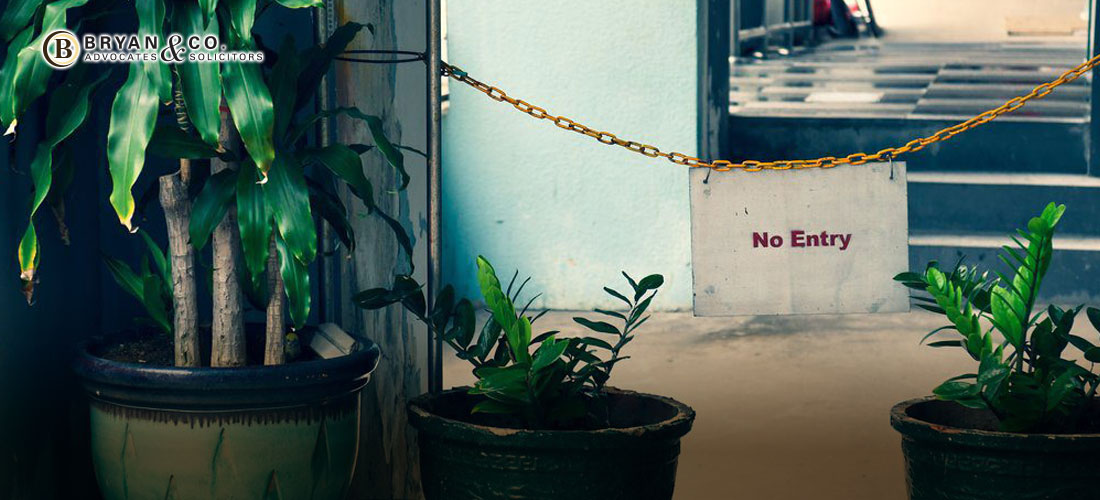
Briefly, an injunction is an order from the court that either prohibits a party from doing something or compels a party to do something. In our previous article, we discussed one form of injunction known as the Fortuna Injunction. In this article, we will be looking at another form of injunction known as an Anton Piller Order.
THE ANTON PILLER ORDER
The Anton Piller Order gets its name from the case of Anton Piller KG v Manufacturing Processes Ltd & Others (“the Case of Anton Piller KG“).
It must be noted that an Anton Piller Order is not an order allowing the plaintiff to enter a defendant’s premises against their will nor to allow the plaintiff to use force in doing so. This so much is clear from the judgment of the court in the Case of Anton Piller KG.
As highlighted by Lord Denning, an Anton Piller Order is not a search warrant by which the bearer has an absolute right to enter into a premise to search for evidence. The Anton Piller Order is an order from the court that authorises the plaintiff’s entry into the defendant’s premises and the inspection of the materials with the permission of the defendant. In other words, the plaintiff would still need the defendant’s permission. However, this being an order of the court, the Anton Piller Order in a way orders the defendant to give that permission, failing of which they would be guilty of contempt of court.
WHEN CAN AN ANTON PILLER ORDER BE GRANTED?
The Case of Anton Piller KG set out certain conditions that the court should take into its deliberation whether or not to grant an Anton Piller Order:
- There must be an extremely strong prima facie case;
- The damage, potential or actual, must be very serious for the applicant; and
- There must be clear evidence that the respondent has in its possession incriminating documents or things, and that there is a real possibility that it may destroy such material before any application inter partes can be made.
The Malaysian courts have also adopted and recognised the Anton Piller Order. In fact, the judge in the Malaysian case of Makonka Electronic Sdn Bhd v Electrical Industry Workers’ Union & Otherscommented that “[t]he Anton Piller Order is a valuable procedure and ought to be preserved.” His Lordship then listed some of the requirements and safeguards that should be ensured in an application for an Anton Piller Order as follows:
- There must be full and frank disclosure of all relevant information and evidence to justify the issuance of the order;
- The order must be drawn such that it extends no further than the minimum necessary to achieve the preservation of evidence which may be otherwise removed or destroyed;
- The application includes first alternative prayers for orders to produce and deliver specific evidence. Only upon the defendant’s failure to produce and deliver such evidence would the other orders of the Anton Piller Order come into effect;
- The application contains clear and specific undertakings that the order will be served by a solicitor who will at the same time supply a copy of the application and all affidavits and documents put before the judge in making the application; explain its exact terms to the respondent; advise him to seek immediate legal advice and that he has a reasonable time to do so;
- The application contains clear undertakings for damages, and that the evidence obtained will not be used in any other proceedings without the consent of the court; and
- As a further safeguard, to have a separate solicitor to supervise the execution by the applicants’ solicitors, and persons who are to accompany him are to be named in the order so that they may be identified by the respondent.
Conclusion
The Anton Piller Order is a valuable tool available to a plaintiff, particularly in situations where the only incriminating evidence is in the possession of the defendant and where such incriminating evidence might be destroyed. It is only but pure human nature that one would try to find ways out of an unfavourable situation. An Anton Piller Order serves to assist the plaintiff in ensuring the security of the incriminating evidence thereby preserving justice for the plaintiff.
However, the courts have also recognised that an Anton Piller Order is powerful and could almost be said to be draconian. As such, there are in place requirements and safeguards in order to ensure that not only the rights of the plaintiff are protected but also the rights of the defendant.
Request Appointment
Contact us at +603 3000 8626 or email to general@brycolaw.com
